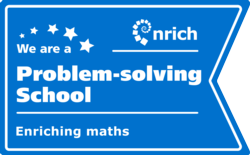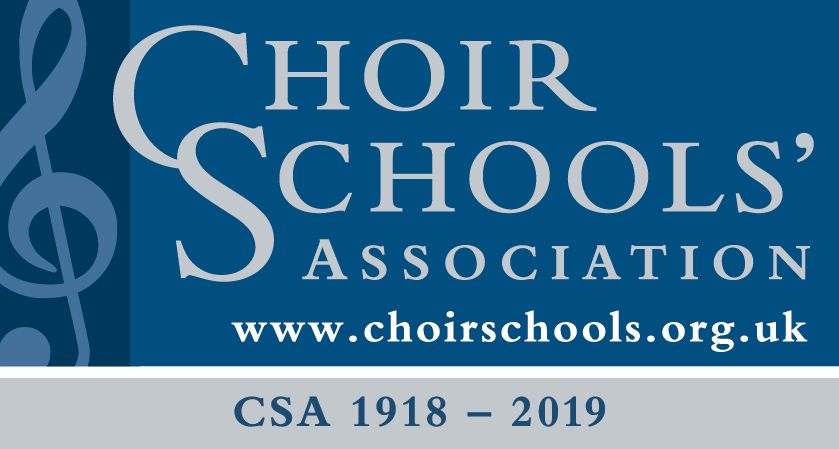Mathematics
Fourth Form (Years 7 and 8)
Lower 4 and Upper 4 provide a firm introduction to the subject and what we expect of a Norwich School mathematician. Our aim during these two crucial years is to develop numerical and algebraic skills through a variety of methods, while providing an introduction to linking different mathematical ideas to solve non-routine problems.
Broadly speaking, technique development follows the White Rose Maths programme, these being developed through application to other problems. Note that the material we teach is not wholly restricted to that covered within the scheme.
Fifth Form (Years 9, 10 and 11)
Our 5th Form pupils follow the Edexcel IGCSE (9-1) specification (4MA1).
Lower 5 is a transitional year from Key Stage 3 to Key Stage 4 study. From the beginning of Lower 5, a pupil will study topics aligned with the IGCSE course at an introductory level with further development into more advanced concepts through Middle and Upper 5.
In the Middle and Upper 5, further stretch to the IGCSE course is provided through an enriched curriculum: we use the AQA Further Mathematics GCSE (8365)course to develop topics in the IGCSE course much further, given the significant overlap in concepts in both. Moreover, we find that this also acts as excellent preparation for A level study in our subject.
Sixth Form
A level Mathematics and Further Mathematics provide the next step in logical thought; introduction to proof and rigour, both numerically and algebraically, and applied problem solving are the key features of a Linear A level course.
To that end, we offer both the OCR (A) A level Mathematics course H240 and A level Further Mathematics course H245 to pupils in the sixth form.
Our Offer: OCR (A) A level Mathematics H240
In A level Mathematics, the course splits into three streams – Pure Mathematics (Number, Algebra etc), Statistics (Introduction to Data Analysis and Probability) and Mechanics (Introduction to Classical Physics). All three of these streams are compulsory in all A level courses.
Examination in the subject is by three, 2 hour papers: Paper 1 is Pure Mathematics, Paper 2 is Pure Mathematics and Statistics and Paper 3 is Pure Mathematics and Mechanics. The Pure Mathematics content equates to two-thirds of the marks achieved and Statistics and Mechanics one-sixth of the marks, each.
This course is spread across the full two years of study with, broadly speaking:
- The Lower 6th being a year of significant abstraction development, involving topics such as Exponentials and Logarithms, Trigonometric Equations and Integration in Pure Mathematics, The Binomial Distribution in Statistics and Variable Acceleration in Mechanics.
- The Upper 6th being a year of significant technique and problem-solving development, involving topics such as Parametric Equations, Differential Equations and Proof in Pure Mathematics, The Normal Distribution and Hypothesis Testing in Statistics and Forces in Equilibrium in Mechanics.
In a typical year, the department has five A level Mathematics classes, with pupil numbers being between 10 and 15 pupils. Every class has two teachers.
Outside of pursuing a course in Mathematics at university, our A level Mathematics pupils tend to use their qualification as support for other science subjects as university, especially in Engineering and Physical and Chemical Sciences, as well as a significant number that wish to apply for medicine.
Is Mathematics is for you? The answer is yes if you expect to achieve high grades at GCSE (a grade 7 or above at GCSE, or equivalent) and, perhaps more importantly, you hold a very strong interest in the subject.
Our Offer: OCR(A) A level Further Mathematics H245 (which also includes study of Edexcel A level Mathematics H240)
In A level Further Mathematics, pupils study the full A level Mathematics course in the Lower Sixth (outlined above and following a similar structure) and the full A level Further Mathematics course in the Upper Sixth. The Further Mathematics course is assessed by four examination papers, two of which are compulsory and two of which are chosen by the department to offer the greatest breadth of study. These exam papers are in addition to those outlined for the A level Mathematics course above, for an award of two full A levels.
Determining when to sit the award of A level Mathematics is taken on an individual basis each year. We will steer and guide you individually towards what we believe is the correct path for you to maximise the grades you receive.
In the Upper Sixth, we teach:
- Pure Core 1 and 2 (compulsory units): these are units that develop, up to introductory degree level, topics in, for instance, Hyperbolic Functions, Complex Numbers and Second Order Differential Equations.
- Statistics (Optional unit): The Poisson Distribution, Hypothesis Testing on Sample Mean, Non-Parametric Tests, Continuous Random Variables.
- Mechanics (Optional unit): Work, Energy and Power, Circular Motion, Collisons, Centres of mass.
In a typical year, the department has two A level Further Mathematics classes, with pupil numbers being between eight and 12 pupils. Every class has three teachers. These classes are all taught separately to the A level Mathematics classes.
Is Further Mathematics for you? If you expect to achieve very high grades at GCSE (at least a grade 8 at GCSE, or equivalent), you have experience of any additional maths qualifications or topics within your studies (this is not compulsory) and, more importantly, you wish to pursue a very challenging university career in Mathematics or Physical Sciences, then consider Further Mathematics.
The department also offers extension sessions through its Senior Maths Club, meeting once weekly.






